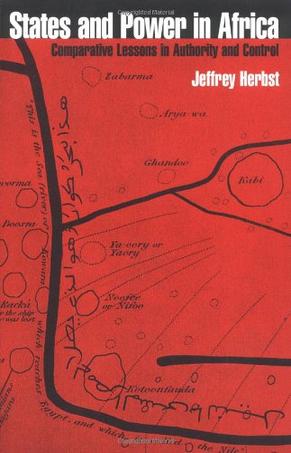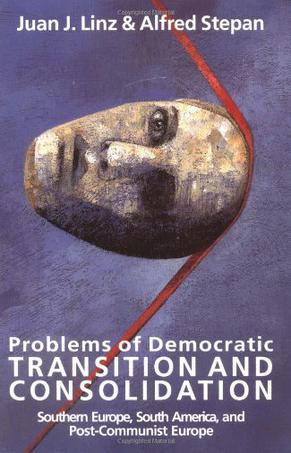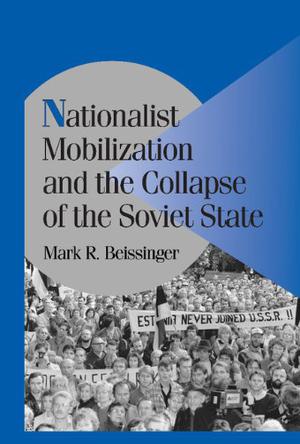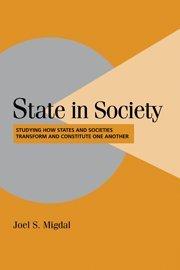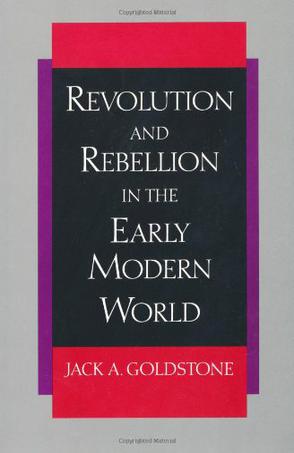欢迎来到相识电子书!
标签:比较政治
-
Understanding Ethnic Violence
This 2002 book seeks to identify the motivations of individual perpetrators of ethnic violence. The work develops four models, labeled Fear, Hatred, Resentment, and Rage, gleaned from existing social science literatures. The empirical chapters apply these four models to important events of ethnic conflict in Eastern Europe, from the 1905 Russian Revolution to the collapse of Yugoslavia in the 1990s. Each historical chapter generates questions about the timing and target of ethnic violence. The four models are then applied to the case, to learn which does the best job in explaining the observed patterns of ethnic conflict. The findings challenge conventional wisdom, in that the Resentment narrative, centered on a sense of unjust group status, provides the best fit for a variety of cases. While Fear, Hatred, and Rage do motivate hostile actions, Resentment pervasively appears to inflame ethnic animosity and drive outcomes in the timing and pattern of action. -
State Formation, Nation Building and Mass Politics in Europe
Stein Rokkan was one of the leading social scientists of the post-war world. He was a prolific writer, yet nowhere is his contribution to social science - the conceptual and developmental map of Europe - presented in an integrated and systematic way. Stein Rokkan had plans to do this but died before the work could be started. Drawing on Rokkan's published, unpublished, and translated writings, this book systematizes and integrates Rokkan's numerous writings in the way he wanted to do himself. -
States and Power in Africa
Theories of international relations, assumed to be universally applicable, have failed to explain the creation of states in Africa. There, the interaction of power and space is dramatically different from what occurred in Europe. In his ground-breaking book, Jeffrey Herbst places the African state-building process in a truly comparative perspective, examining the problem of state consolidation from the precolonial period, through the short but intense interlude of European colonialism, to the modern era of independent states. Herbst's bold contention - that the conditions now facing African state-builders existed long before European penetration of the continent - is sure to provoke controversy, for it runs counter to the prevailing assumption that colonialism changed everything. In identifying how the African state-building process differs from the European experience, Herbst addresses the fundamental problem confronting African leaders: how to extend authority over sparsely settled lands. Indeed, efforts to exert control over vast, inhospitable territories of low population density and varied environmental and geographical zones have resulted in devastating wars, millions of refugees, and dysfunctional governments perpetrating destructive policies. Detailing the precise political calculations of distinct African leaders, Herbst isolates the basic dynamics of African state development. In analyzing how these leaders have attempted to consolidate power, he is able to evaluate a variety of policy alternatives for dealing with the fundamental political challenges facing African states today. -
中国共产党转型与中国的变迁
本书在国内首次对海外学者关于中国共产党的研究成果进行了系统的梳理,划分了其主要发展阶段,提出了一个以“控制—制衡”为核心的分析框架,并从党与市场、党与国家、党与社会三个维度对其研究内容进行了阐述,得出如下启示:在从革命党向执政党的历史转型中,中国共产党同时面临着两大根本任务:一是适应改革开放之后中国社会经济环境的变化,承担中国国家建设的历史重任;二是维持自身的组织存在与政治认同。这两大根本任务之间存在一种辩证关系,同时,与改革开放后中国的政治变迁息息相关。 -
State Power and Social Forces
This is a collection of scholarly essays on state, society and politics in the Third World, with cases drawn from Africa, the Middle East, Asia, and Latin America. The introductory chapter outlines the theoretical approach of the contributors and the concluding chapter summarizes the importance of their studies and the contribution of the volume to general theory in comparative politics. The book is relevant to the growing state theory literature in the social sciences and it puts forward a state-in-society approach to the study of political development. -
福利资本主义的三个世界
该书把福利国家分成不同的类别,介绍了各类福利国家的特征和福利制度的发展前景。该书提出了许多令人深思的问题,如后工业化社会是不是由市场力量所促成,而是由各国的特点和差异性所决定的;西方社会福利国家的概念也是在不断发展变化之中。 -
Problems of Democratic Transition and Consolidation
Since their classic volume The Breakdown of Democratic Regimes was published in 1978, Juan J. Linz and Alfred Stepan have increasingly focused on the questions of how, in the modern world, nondemocratic regimes can be eroded and democratic regimes crafted. In Problems of Democratic Transition and Consolidation, they break new ground in numerous areas. They reconceptualize the major types of modern nondemocratic regimes and point out for each type the available paths to democratic transition and the tasks of democratic consolidation. They argue that, although "nation-state" and "democracy" often have conflicting logics, multiple and complementary political identities are feasible under a common roof of state-guaranteed rights. They also illustrate how, without an effective state, there can be neither effective citizenship nor successful privatization. Further, they provide criteria and evidence for politicians and scholars alike to distinguish between democratic consolidation and pseudo-democratization, and they present conceptually driven survey data for the fourteen countries studied. Problems of Democratic Transition and Consolidation contains the first systematic comparative analysis of the process of democratic consolidation in southern Europe and the southern cone of South America, and it is the first book to ground post-Communist Europe within the literature of comparative politics and democratic theory. -
Nationalist Mobilization and the Collapse of the Soviet State
This 2002 study examines the process by which the seemingly impossible in 1987 - the disintegration of the Soviet state - became the seemingly inevitable by 1991, providing an original interpretation not only of the Soviet collapse, but also of the phenomenon of nationalism more generally. Probing the role of nationalist action as both cause and effect, Beissinger utilizes data and case studies from across the USSR during its final years to elicit the shifting relationship between pre-existing structural conditions, institutional constraints, and event-generated influences in the nationalist explosions that brought about the collapse of the Soviet Union. As Beissinger demonstrates, the 'tidal' context of nationalism - i.e., the transnational influence of one nationalism upon another - is critical to an explanation of the success and failure of particular nationalisms, why some nationalisms turn violent, and how a crescendo of events can overwhelm states, periodically evoking large-scale structural change in the character of the state system. -
Cages of Reason
Blending political, historical, and sociological analysis, Bernard S. Silberman offers a provocative explanation for the bureaucratic development of the modern state. The study of modern state bureaucracy has its origins in Max Weber's analysis of the modes of social domination, which Silberman takes as his starting point. Whereas Weber contends that the administration of all modern nation-states would eventually converge in one form characterized by rationality and legal authority, Silberman argues that the process of bureaucratic rationalization took, in fact, two courses. One path is characterized by permeable organizational boundaries and the allocation of information by "professionals." The other features well-defined boundaries and the allocation of information by organizational rules. Through case studies of France, Japan, the United States, and Great Britain, Silberman demonstrates that this divergence stems from differences in leadership structure and in levels of uncertainty about leadership succession in the nineteenth century. Silberman concludes that the rise of bureacratic rationality was primarily a response to political problems rather than social and economic concerns. Cages of Reason demonstrates how rationalization can have occurred over a wide range of cultures at various levels of economic development. It will be of considerable interest to readers in a number of disciplines: political science, sociology, history, and public administration. "Silberman has produced an invaluable, densely packed work that those with deep knowledge of public administrative development will find extremely rewarding." —David H. Rosenbloom, American Political Science Review "An erudite, incisive, and vibrant book, the product of intensive study and careful reflection. Given its innovative theoretical framework and the wealth of historical materials contained in it, this study will generate debate and stimulate research in sociology, political science, and organizational theory. It is undoubtedly the best book on the comparative evolution of the modern state published in the last decade."—Mauro F. Guillen, Contemporary Sociology -
Political Order and Inequality
The fundamental question of political theory, one that precedes all other questions about the nature of political life, is why there is a state at all. Is human cooperation feasible without a political authority enforcing it? Or do we need a state to live together? This problem then opens up two further questions. If a state is necessary to establish order, how does it come into place? And, when it does, what are the consequences for the political status and economic welfare of its citizens? Combining ethnographical material, historical cases, and statistical analysis, this book describes the foundations of stateless societies, why and how states emerge, and the basis of political obligation. As a result of this inquiry, it explains the economic and political roots of inequality, describes the causes of the stagnation of the preindustrial world, and explores what led to the West’s prosperity of the past two centuries. The first book to offer (from an empirical/positive - as opposed to normative - point of view) a complete theory of political order, integrating Olson's work (of a Hobbesian nature) with consent-based theories of state formation The first book to offer a theory of inequality Challenges the main paradigm of economic growth today - institutionalism - offering a new explanation of economic growth/stagnation -
選舉制度設計手冊
本書英文原版為Electoral System Design,由位於瑞典的政府間機構The International Institute for Democracy and Electoral Assistance (IDEA) 組織各國研究選舉制度設計的學者編寫,是一本認識選舉制度的入門手冊。 本書概述不同選舉制度的設計及其效果,介紹了不同選舉制度的具體運作過程,扼要分析各種制度的適用性、可行性、優缺點以及對政治發展、政黨建設和政府管治、政策制定的影響。書中並列出十個標準,用來判斷哪一種選舉制度最適合某一特定社會,並收錄18個國家和地區選舉制度設計和改革的案例,進一步說明不同制度在各國執行的成效。 本書集合制度設計研究學者的智慧,期待能達成兩個目的:一是擴闊選舉知識,啟發公共討論;二是為憲法、政治架構和選舉立法設計者提供一些分析方法,以便作出適當抉擇。 香港社會正在討論行政長官和立法會雙普選問題,預計政府和民間團體將陸續拋出不同的方案。面對如此熱烈的討論,本書正好提供理論的基礎,讓各方從基本認識選舉制度,從而思考不同的設計對香港的政治發展、政黨建設、民主鞏固有何影響,帶領深入而有建設性的討論。 -
The Dark Side of Democracy
From Publishers Weekly In addressing the origins of ethnic cleansing, UCLA sociologist Mann (Fascism) locates differing stages of political participation as a major factor. He begins with stable authoritarian regimes (e.g., Tito's Yugoslavia) that exclude participation; when such regimes break down, there is a period of everybody scrambling for power and trying to exclude somebody else with the "else" usually defined on ethnic lines. Other examples include Armenia, the Holocaust and Rwanda, as well as India (the Sikhs and Muslims) and Indonesia (the Chinese). Eventually, the author's somewhat optimistic scenario argues, we arrive at stable participatory societies, with everybody somewhat included and limits set on what can be done to exclude groups (the Voting Rights Act of 1964 in the U.S.). Free from sociological jargon and abundant in historical data, this study sufficiently allows lay readers access. It can be difficult at moments to tell if Mann's prediction of the high body count in the Third World's coming century or so of ethnic cleansing is Eurocentric, callous or grimly realistic, but such moments always resolve into that last choice. Mann proposes some feasible remedies and scales of intervention. Copyright © Reed Business Information, a division of Reed Elsevier Inc. All rights reserved. --This text refers to the Hardcover edition. Review 'The Dark Side of Democracy ... is a formidable and in some ways successful attempt to produce a sociological grand theory to explain these terrible events. ... Mann's work represents contemporary historical sociology at its best - well informed, relevant, well evidenced and interesting - and all readers must have great respect for his conclusions ...' Times Higher Education Supplement 'Mann's volume provides a valuable contribution to the study of murderous ethnic cleansing. The ability to gather such a wide range of perspectives and experience makes his effort both worthwhile and timely, and it will therefore be very useful for anyone working and dealing with ethnic conflicts. An additional merit is that Mann has written this book at a level that is going to satisfy the inquisitiveness of both his peers and students, which ensures (and inspires) additional enquiries into its topic.' Southeast European Politics 'The Dark Side's theses are enormously suggestive, clearly have considerable purchase on the cases and inform rich interpretations that set new standards of analytical complexity in historical sociology.' Sociology 'This is a very important book ... Mann has provided a powerful analysis which will give much food for thought. ... This book should be read by everybody with a concern for the ethnic cleansing that now forms a staple part of our media diet.' British Society of Criminology 'Michael Mann's impressive The Dark Side of Democracy makes a giant step toward specifying the concrete social studies and circumstances that produce such results ... It is a major achievement.' New Left Review -
State in Society
The essays in this book trace the development of Joel Migdal's 'state-in-society' approach. That approach illuminates how power is exercised around the world, and how and when patterns of power change. Despite the triumph of concept of state in social science literature, actual states have had great difficulty in turning public policies into planned social change. The state-in-society approach points observers to the ongoing struggles over which rules dictating how people will lead their daily lives. These struggles, which ally parts of the state and groups in society against other such coalitions, determine how societies and states create and maintain distinct ways of structuring day-to-day life - the nature of the rules that govern people's behavior, whom they benefit and whom they disadvantage, which sorts of elements unite people and which divide them, what shared meaning people hold about their relations with others and their place in the world. -
Ethnic Groups in Conflict, Updated Edition With a New Preface
Drawing material from dozens of divided societies, Donald L. Horowitz constructs his theory of ethnic conflict, relating ethnic affiliations to kinship and intergroup relations to the fear of domination. A groundbreaking work when it was published in 1985, the book remains an original and powerfully argued comparative analysis of one of the most important forces in the contemporary world. -
The Disciplinary Revolution
What explains the rapid growth of state power in early modern Europe? While most scholars have pointed to the impact of military or capitalist revolutions, Philip S. Gorski argues instead for the importance of a disciplinary revolution unleashed by the Reformation. By refining and diffusing a variety of disciplinary techniques and strategies, such as communal surveillance, control through incarceration, and bureaucratic office-holding, Calvin and his followers created an infrastructure of religious governance and social control that served as a model for the rest of Europe—and the world. Table of Contents Preface and Acknowledgments Introduction 1. Body and Soul: Calvinism, Discipline, and State Power in Early Modern Europe 2. Disciplinary Revolution from below in the Low Countries 3. Disciplinary Revolution from above in Brandenburg-Prussia 4. Social Disciplining in Comparative Perspective Conclusion Notes Bibliography Index -
East Asian Social Movements
In the study of civil society and social movements, most cases are based in Western Europe and North America. These two areas of the world have similar histories and political ideals and structures in common which in turn, affect the structure of its civil society. In studying civil society in Asia, a different understanding of history, politics, and society is needed. The region’s long traditions of centralized, authoritarian states buttressed by Confucian and in some cases Communist ideologies may render this concept irrelevant. The chapters in this international volume cover most of the areas and countries traditionally defined as belonging to East Asia: Japan, Taiwan, South Korea, Hong Kong, Singapore and China. The case studies included in this volume confront the utility of using the Western concept of civil society, represented in its most active form – social movements – to think about East Asia popular politics. Along with providing an array of important case studies of social movements in East Asia, the introduction, chapters and conclusion in the book take up three major theoretical questions: the effect of the East Asian cultural, social and institutional context upon the mobilization, activities and outcomes of social movements in that region, the role of social movements in larger transformative processes, utility of Western social movement concepts in explaining social movements in East Asia. This book will be of interest to two major groups of readers, those who study East Asia and those who pursue social movements and civil society, as well as politics more generally. From the Back Cover In the study of civil society and social movements, most cases are based in Western Europe and North America. These two areas of the world have similar histories and political ideals and structures in common which in turn, affect the structure of its civil society. In studying civil society in Asia, a different understanding of history, politics, and society is needed. The region’s long traditions of centralized, authoritarian states buttressed by Confucian and in some cases Communist ideologies may render this concept irrelevant. The chapters in this international volume cover most of the areas and countries traditionally defined as belonging to East Asia: Japan, Taiwan, South Korea, Hong Kong, Singapore and China. The case studies included in this volume confront the utility of using the Western concept of civil society, represented in its most active form – social movements – to think about East Asia popular politics. Along with providing an array of important case studies of social movements in East Asia, the introduction, chapters and conclusion in the book take up three major theoretical questions: the effect of the East Asian cultural, social and institutional context upon the mobilization, activities and outcomes of social movements in that region the role of social movements in larger transformative processes utility of Western social movement concepts in explaining social movements in East Asia. This book will be of interest to two major groups of readers, those who study East Asia and those who pursue social movements and civil society, as well as politics more generally. -
Revolution and Rebellion in the Early Modern World
What can the great crises of the past teach us about contemporary revolutions? Arguing from an exciting and original perspective, Goldstone suggests that great revolutions were the product of 'ecological crises' that occurred when inflexible political, economic, and social institutions were overwhelmed by the cumulative pressure of population growth on limited available resources. Moreover, he contends that the causes of the great revolutions of Europe--the English and French revolutions--were similar to those of the great rebellions of Asia, which shattered dynasties in Ottoman Turkey, China, and Japan. The author observes that revolutions and rebellions have more often produced a crushing state orthodoxy than liberal institutions, leading to the conclusion that perhaps it is vain to expect revolution to bring democracy and economic progress. Instead, contends Goldstone, the path to these goals must begin with respect for individual liberty rather than authoritarian movements of 'national liberation.' Arguing that the threat of revolution is still with us, Goldstone urges us to heed the lessons of the past. He sees in the United States a repetition of the behavior patterns that have led to internal decay and international decline in the past, a situation calling for new leadership and careful attention to the balance between our consumption and our resources. Meticulously researched, forcefully argued, and strikingly original, Revolutions and Rebellions in the Early Modern World is a tour de force by a brilliant young scholar. It is a book that will surely engender much discussion and debate. -
强社会与弱国家
为何即使拥有那么多资源和处置权,还是有那么多亚非拉国家在指导其国民行为时困难重重?为何同时又有为数甚少的几个国家成功地取得了这种控制能力?失效的法律和社会政策对国家本身又会造成什么样的影响?那么来看看乔尔·S.米格代尔的《凤凰文库·政治学前沿系列:强社会与弱国家(第三世界的国家社会关系及国家能力)》吧。 《凤凰文库·政治学前沿系列:强社会与弱国家(第三世界的国家社会关系及国家能力)》采取新的研究视角,指出:在亚非拉地区,国家机构在人群中——甚至是最偏远的山村——建立了其机构。然而,近距离观察这些机构,却会发现它们往往按截然不同于其远在首都的创立者们设想的原则行事。解决这一悖论,可采取强调国家和其他社会组织争夺社会控制的国家社会关系的模型,并推行一种国家成功战胜社会的理论。
热门标签
下载排行榜
- 1 梦的解析:最佳译本
- 2 李鸿章全传
- 3 淡定的智慧
- 4 心理操控术
- 5 哈佛口才课
- 6 俗世奇人
- 7 日瓦戈医生
- 8 笑死你的逻辑学
- 9 历史老师没教过的历史
- 10 1分钟和陌生人成为朋友



